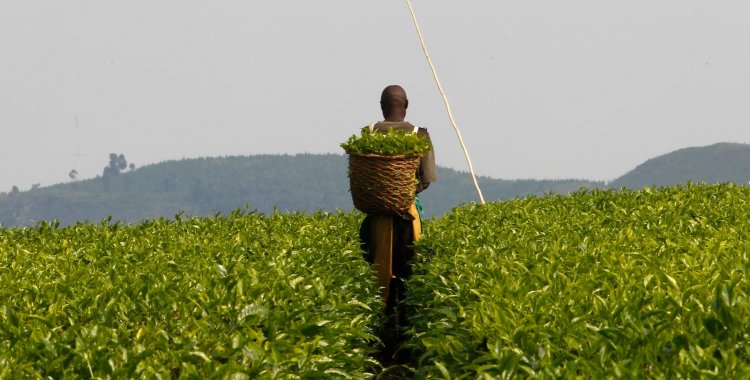The implementation of the so-called Integrated Plan for Accelerated Family Agriculture and Fisheries (PIAAPF), approved on Thursday by the Economic Commission of the Council of Ministers, which will also serve to boost fishing in the country, provides for this year the value of 91.2 billion kwanzas, for next year 150.5 billion kwanzas and the same value for 2022.
In the document, the Government considers that family food production is a very important pillar for the country's economy, being fundamentally developed through agricultural, livestock, fishing and forestry systems, which use intensive family labour, a segment that is currently responsible for the production of 81 percent of cereals, 92 percent of roots and tubers and 89 percent of legumes and oilseeds, 85 percent of meat and 30 percent of fish.
More than three million families are involved in agricultural and fisheries activities in the country, creating more than 5,171,991 jobs, representing more than half of the economically active population.
The authorities admit in the document that agricultural production and family fishing have faced serious challenges for their development, including safe and equitable access to land, water, low technical assistance, credit facilities among others.
The limitations in rural areas for the disposal of production, the lack of storage, freezing and processing infrastructures for more competitive prices and limited investments in technologies and innovations are also difficulties faced by producers.
The situation of the sector described in the document has also suffered the impact of the covid-19 pandemic, which has claimed millions of lives and put pressure on countries' agri-food systems, as well as the destabilization of economies almost everywhere, which is no different in Angola, with the increase in national production being one of the main resilience responses to mitigate its effects.
"Before covid-19, Angola already had the great challenge of changing the scenario of poverty (51.2 percent of the population) and food insecurity (7.4 million undernourished people), reducing the import of processed food worth a total of US$2.5 million (2017) and with the new scenario of covid-19, some countries are taking measures to restrict exports of some raw materials, which could be a problem for Angola in the near future, due to the great dependence on imported food products," reads the plan.
This scenario, the document says, forces Angola to accelerate the process of increasing national production as a measure of resilience to reduce the socio-economic impact of the pandemic.
PIAAPF is based on four axes, one, transversal - institutional capacity building - and the others, of specific areas - technical assistance for agricultural, livestock, forestry and fisheries development; logistic support; financing and creation of synergies and multi-sectoral coordination.
With regard to financing, as strategic objectives, economic incentives should be identified to encourage operators in the agricultural and fisheries sector and ensure the capitalisation of entrepreneurs in the productive sector, strengthening them and consequently promoting the dynamisation and development of this branch of activity.
The plan has several financial mechanisms available, namely the FADA credit line of 15 billion kwanzas, for financing family farms, with interest rates not exceeding 3 percent, and the Banco de Desenvolvimento de Angola (BDA) credit line of 26.4 billion kwanzas, with a rate of 9 percent, a two-year maturity and a 180-day capital grace period, to finance the purchase of trade operators and the distribution of products to national producers.
In another credit line, the BDA provides 13.5 billion kwanzas, with a rate of 9 percent, a two-year maturity and a 180-day capital grace period, to finance the purchases of family producers' cooperatives and small and medium-size agricultural entrepreneurs, from national suppliers of improved seeds, fertilizers, pesticides, vaccines and services.
The same financial institution provides a credit line of 750 million kwanzas to finance projects to modernise and expand the activities of up to 15 cooperatives per province, in the agriculture and fisheries sectors with a maximum value of 50 million kwanzas per cooperative, with an interest rate of 7.5 percent and maturity equivalent to the operational cycle.
The Fundo Activo de Capital de Risco (FRACA) appears with an investment of three billion kwanzas in the equity of agriculture, livestock and fisheries cooperatives and a credit line of four billion kwanzas to finance micro-finance companies, field schools and community credit banks.







